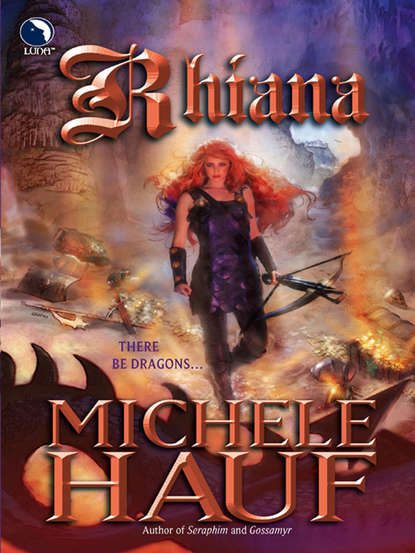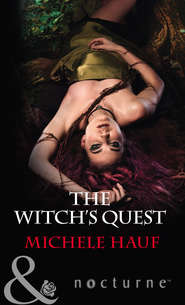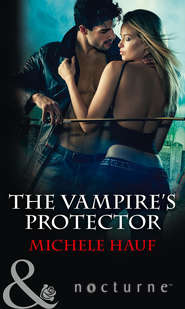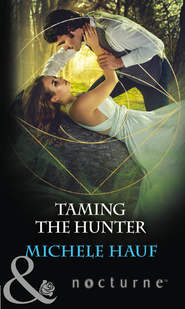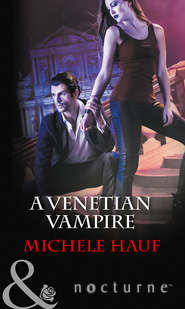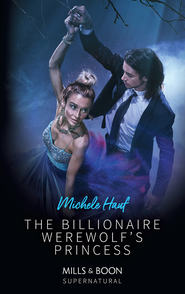По всем вопросам обращайтесь на: info@litportal.ru
(©) 2003-2025.
✖
Rhiana
Автор
Год написания книги
2019
Настройки чтения
Размер шрифта
Высота строк
Поля
Not sure if he considered, or if he merely played the moment out for effect, she waited nervously as the man stepped back from her and studied the floor, hands to hips. Finally he lifted his head, and again slipped close, so close Rhiana smelled his intentions, and they were not sincere. “Be you a witch?”
“N-no, my lord.”
“Come now, time to tell the truth. You’ve bewitched my wife.” He lowered his voice to a whisper, “You have bewitched me.” Spinning and stretching out his arms in declaration, he stated, “Obviously, you’ve the power to bewitch dragons to lie down before you and seek death.”
All eyes in the keep fixed to her. Chitters and smirks rose amongst the rough scent of power and dirt and rosemary-tainted curiosity.
“I have but skill and dexterity, my lord. I have been trained to know the dragon, its habits, its hunting rituals—”
“And yet you could not foresee the deaths of the three who have been taken from our bosom?” Allowing that fact to settle in, Guiscard grandly stalked the floor. “You know nothing, wench. Now, will you walk from the keep to tend the feminine skills, or must I have you arrested and thrown into the dungeon?”
“I will walk from the keep, my lord.” But she would vow fealty to no man. Especially one who risked the lives of innocents through his ignorance. “Good day to you.”
And she turned and walked away, feeling many eyes on her back, and likening it to a nest of hungry dragons. But these dragons did not kill for sustenance, no; these dragons toyed with women for their humor. They had put her in her place, upon a shelf to be regarded only when chores needed be done or fancy be met.
Not allowed to slay the dragons?
She’d see about that.
CHAPTER FOUR
What manner of soul did she possess?
That she had physical differences from others could not be dismissed. So she had red hair and freckles. Ignorance caused others to tease her. The color of one’s hair did not make them evil or unclean. There were many in the village with red hair. Of course, it was not so bold as Rhiana’s, as if sun-drenched garnets. And she could not disregard her unusual eyes. Only those who really looked at her noticed. She did not call attention to the fact one eye was gold, the other green. Lydia’s eyes were green. But when Rhiana asked, Lydia would not verify if her father’s eyes had been gold.
At the end of a stretch of houses, in the row facing the gardens, stood the chapel. Entering the always open doors, Rhiana genuflected toward the front of the church, then straightened and dipped her fingers into the fount of consecrated water. There was no permanent priest, but the one who traveled along the coast was currently in residence at the castle for a fortnight.
Tracing a cross over her forehead, she whispered a Hail Mary. Confession must be made soon; it would erase her venial sins, but not the mortal ones. So she did not sin mortally.
Or so she hoped.
Could slaying dragons be considered a mortal sin? She did not know if, by taking the life of a dragon purposefully, she robbed their souls of divine grace. God had cursed them. What grace could they have? Did they even possess a soul?
There were a few benches near the door. Most ladies brought along their own simple velvet-cushioned prie dieu to place in the nave. Rhiana liked the open space. No clutter, no sign of the riches upon which the village thrived. Just simple peace.
Striding to the front of the small church, she knelt upon the stone floor and pressed her hands together.
A wooden cross hung over the altar, supported by ropes on either arm of the cross. Carved from limewood and not oiled, the wood bore a few holes from burrowing insects, but that only gave it more charm, Rhiana mused. It was far from the grandiose cross embellished with rubies and gold that she had seen in the castle chapel. She did not care to worship a gaudy master.
Lord Guiscard’s penchant for finery oftentimes made her wonder if Lady Anne were not just another bauble in his collection. For truly, it was as if he had plucked her out from a treasure box. With no family to name, and no origins to claim, the woman had arrived in St. Rénan three years earlier, already wed to the baron. (Yet, for all purposes, she had claimed the grasshopper as her family sigil.) Barely seventeen at the time, Anne had spoken little, yet her round dark eyes had seen all.
She had reached out to Rhiana one eve during a hoard-raid fête, drawing her close into a hug.
“So pretty,” Anne had said of Rhiana’s hair. “Like fire. I like fire.”
That was all Rhiana had needed to hear to comply should Anne ever request her presence.
Though she was hardly an orphan, Rhiana felt an affinity to Anne. They were two alike, in a manner she could not quite decide. While Anne’s mind was not always her own, and she often flighted from reality, Rhiana could sense the young woman’s distinct need for belonging. To understand.
For Rhiana longed to understand.
“What am I?” she whispered now to the cross. “Why do I…?”
Not burn.
The preternatural trait must always be hidden from others. Rhiana would not speak of it, except to Paul, and only then when they were assured no others were close to hear.
Upon her sixteenth birthday Rhiana had forced herself to visit the Nose. The old woman had earned her name because she was always nosing about, had her nose into everything, and knew more than most even knew about themselves. The Nose moved in the shadows, held stealth in her breast, and yet, was no more threatening than the elder widow she was. She was not a witch, though mayhap a sage of sorts. Empyromancy is what she practiced, reading the future in the flames of a hearth fire or the wild ravages of a bonfire. The Nose lived at the south edge of the village, apart from all the rest, not caring to participate in the hoard-raid festivities, but quietly accepting her portion of the yearly stipend and pocketing it in the rags she chose to wear. Her participation in St. Rénan’s way of life was the fertilizer she created to cover the castle gardens that produced some stunningly large vegetables and abundant medicinal herbs.
After staring at Rhiana from across a table covered in moth-eaten cor-du-roi, squinting and sniffing as if determining her species, the Nose shot upright and declared her not a witch, but something so much more. Pressing a palm before Rhiana’s face, her withered fingers had moved like spider limbs testing the air, and then retracted as if stung by a bee in her web. With a shrill cry, she’d hastened Rhiana from her home and admonished her never to return.
Not a witch.
Something so much more?
But what then?
Touching the moist line of the cross she had traced onto her forehead, Rhiana now mused that it matched the kill spot on a dragon’s skull. Put there to remind the beast of what it could never have—divine grace.
Legend told of fireless dragons that long ago roamed the earth. Then the dark angels fell. And the dragons, enticed by the wicked creatures that had defied their God, had mated with them. In punishment, He had reached down from the heavens and touched the dragons’ foreheads. Their first offspring had been born breathing fire, a gift from the angels of hell—Lucifer’s breath—and an inverted cross upon its brow, the kill spot, a punishment from heaven.
Had she been put into this world specifically to slay dragons? It felt right. When she stood before a fiery beast and defied it with her crossbow and sheer mettle Rhiana felt in her element.
Why Guiscard insisted she not continue, she could only guess was because she was female. Surely, if a male dragon slayer offered to defeat the nest of beasts, the baron would agree to the offer?
“Would he?”
She’d not gotten that feeling from him. For some reason, Rhiana sensed Lord Guiscard would do nothing to stop the imminent threat to St. Rénan. And that feeling unsettled her.
Shuffling to sit on her haunches and spreading her legs out before her, Rhiana rested her elbows on her knees. Hardly a ladylike position, especially with the gown rucked to her calves, but she was alone.
There was some part of Narcisse Guiscard that Rhiana understood on a deep inner level. Gentle and patient, he cared for Lady Anne like no other. That he had even accepted a woman not always of her mind into his life spoke untold compassion.
And yet, each time Lord Guiscard looked at Rhiana she felt his desire crawl across her flesh as if a seeking insect. A duplicitous man. And while that very look was exactly the kind of regard Rhiana craved, she would not answer its plea.
“Never,” she whispered. Not from a married man. Not from any of the knights in the village who had pledged to Guiscard. They were all so brutish. The sort of man Rhiana desired must understand a woman, above and beyond her eccentricities. He must not be a brute. Yet, he must practice chivalry. An equal? It was too much to hope for.
Bowing her head she summarized a silent prayer. Thanks be for her strength and skills. Please to keep her family safe and all others in the village she loved and cared for. Paul and Odette. Her mother. Rudolph. Anne. Yes, even Guiscard, for he did love Anne.
And send understanding. Knowledge. Or mayhap, merely acceptance for the unknown.
Crossing herself from forehead to stomach and shoulder to shoulder, Rhiana then stood and glanced out the narrow stained-glass window to her left. The village actually echoed with voices. A good thing to hear after days of silent terror.
On the other hand, if the villagers became complacent only ill could come of their fall from vigilance.
Sweeping up her skirts, Rhiana strode toward the back of the chapel, but noted a glint of steel lying on the floor below the final bench. A leather-sheathed broadsword. The hilt was wrapped in scuffed black leather. Must belong to one of Guiscard’s knights, ever hopeful for a skirmish.
Rhiana drew it halfway from the sheath. The blade held more than a few dings and scuffs. A well-used weapon. Hmm, then it could not belong to any in the garrison. There had been a time when the garrison fought to protect the city from marauders and sea pirates. But the port had closed decades ago, and now the city rarely saw travelers of any sort.





